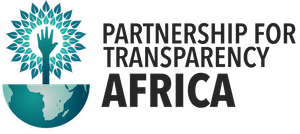Poor governance is one of the largest obstacles to sustainable development in Africa. Corruption, waste and mismanagement divert resources for crucial public services from reaching the marginalized communities that need it most. Transparency International reports that across the Sub-Saharan Africa, a majority of citizens (58%) believe corruption has got worse in their country over the past year. In South Africa, the figure is 83%.
We believe social programs are more sustainable and successful if communities are engaged in the development process. Keeping the government working in the public interest requires informed, organized, active and peaceful citizen participation. We support citizen-led organizations in Africa working to hold their governments accountable. Our programs increase constructive contact between citizens and governments, thereby increasing transparency and accountability, and reducing opportunities for the abuse of power.
Over the past 16 years, PTF and its affiliates have supported 162 civil society partners in 66 countries to complete more than 260 projects. This experience, combined with the support and advice of our expert Advisers, provides great insight into fighting for greater transparency and accountability in difficult circumstances.
How We Work

MOBILIZE RESOURCES
We help community groups and civil society organizations in Africa pilot projects and fundraise for sustainable programs that (1) will have a direct and sustainable impact on reducing corruption, (2) have a measurable and sustainable outcome and (3) involve direct interaction with public agencies.

PROVIDE TECHNICAL SUPPORT
We engage a global network of expert advisers, most of them volunteer, to work with our CSO partners. Our advisers are seasoned development professionals with specialized skills in such areas as governance, public accounting, procurement, performance evaluation, health, education and infrastructure.

DOCUMENT & SHARE EXPERIENCE
We share the knowledge gained from the projects we support. We do this by holding events, publishing print material, and participating in coalitions.


